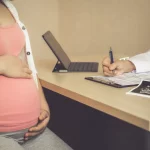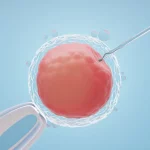
Just days after a bombing outside a fertility clinic in Southern California shocked the nation, the Trump administration has confirmed it is reviewing key recommendations aimed at expanding access to in vitro fertilization (IVF).
The move follows an executive order President Donald Trump signed back in February, directing his administration to find ways to protect IVF access and reduce the steep out-of-pocket and insurance costs associated with the treatment.
“This is a key priority for President Trump,” said White House spokesperson Kush Desai in a statement. “The Domestic Policy Council has completed its recommendations.” However, Desai did not say when the plan would be released or what specific steps it might include.
The recommendations landed on the President’s desk shortly after a car bomb exploded outside the American Reproductive Centers clinic in Palm Springs. The FBI believes the attacker was a 25-year-old man whose writings revealed extreme anti-natalist views—arguing that bringing children into the world is morally wrong. Authorities are investigating the incident as a terrorist act.
The bombing has brought renewed focus to IVF—already a hot topic during the 2024 presidential race—as it becomes increasingly entangled in the wider national debate on reproductive rights.
Dr. Brian Levine, a New York-based fertility specialist, expressed cautious optimism about what the administration’s recommendations might mean for patients.
“As a fertility doctor for over a decade, I’ve never seen this level of interest from the federal government,” he said. “It finally feels like our voices are being heard. I’m hopeful the plan will also push for expanded IVF coverage for military families and federal employees.”
Trump’s campaign previously included calls for universal IVF access, despite his administration’s significant role in overturning Roe v. Wade through conservative Supreme Court appointments. That 2022 decision opened the door for many Republican-led states to impose strict reproductive laws, some of which now threaten IVF access by defining life as beginning at conception.
While Trump vowed on the campaign trail to make IVF treatment free for women, he hasn’t provided specifics on how such a policy would be funded or implemented. Critics argue that without the fall of Roe v. Wade, IVF would not be under threat in the first place—a ruling for which Trump has taken credit.
The cost of IVF remains a major barrier for many families, with treatment typically ranging from $12,000 to $25,000 per cycle. Many people require multiple cycles, and insurance coverage is inconsistent—some plans fully cover IVF, others provide partial coverage, and some offer none at all.
Polling suggests that the majority of Americans want IVF access to be protected. A 2024 survey by the Associated Press and the NORC Center for Public Affairs Research found that around 60% of U.S. adults support access to IVF treatment.
Despite Trump’s pro-IVF rhetoric, his stance often clashes with parts of his own party. Many Republican lawmakers and courts—some influenced by anti-abortion ideologies—have passed or supported laws that give legal rights to embryos, complicating the IVF process. Efforts to pass federal protections for IVF have also faced resistance from within the GOP.
Mini Timmaraju, president of Reproductive Freedom for All, dismissed Trump’s recent IVF comments as little more than political posturing.
“All Trump has done is appoint extremists, restrict reproductive healthcare, and support the Project 2025 agenda, which poses serious threats to IVF nationwide,” she said.
For now, patients and advocates alike are waiting to see if the administration will deliver meaningful action—or just more promises.

Dr. Veera Saghar
As an Egg Donor Coordinator, she plays a critical role in our company. Her background as a medical graduate from ISRA UNIVERSITY in Pakistan provides us with a solid foundation in the medical sciences. She has seven years of clinical experience practicing in the USA. This has given her firsthand experience when collaborating with patients and their families.
She is responsible for managing the process of egg donation from start to finish. We identify and screen potential egg donors.





